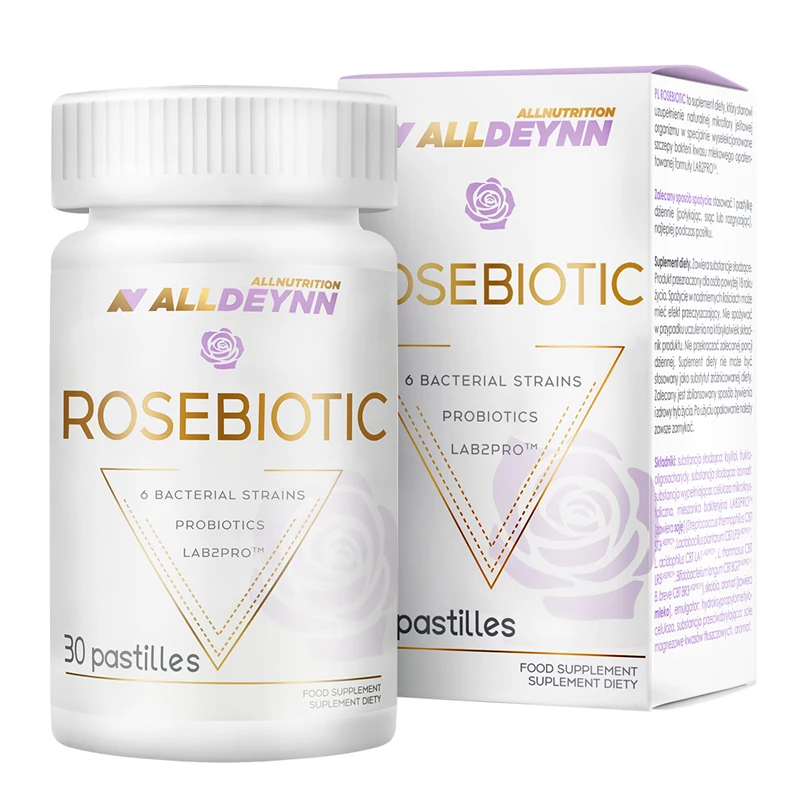Psychobiotic for stress and depression. What is it and does it work? [ranking]
Find out how (and whether) psychobiotics really work.


Learn more about our editorial process
.

Learn more about our editorial process
.

Learn more about our editorial process
.

Learn more about our editorial process
.![Psychobiotic for stress and depression. What is it and does it work? [ranking]](https://cdn-resources.natu.care/uploads/1/dementia_parkinson_s_disease_adhd_composition_head_disease_theme_space_text_1_d07a692797.jpg)
Why you can trust us
Articles on Natu.Care are written based on scientific research, data from government websites and other reliable sources. The texts are written in cooperation with doctors, nutritionists and other health and beauty experts. Articles are reviewed before publication and during significant updates.
.Learn more about our editorial process
.Information about advertisements
Content on Natu.Care may contain links to products from the sale of which we may receive a commission. When creating content, we adhere to high editorial standards and take care to be objective about the products discussed. The presence of affiliate links is not dictated by our partners, and we select the products we review ourselves completely independently.
.Learn more about our terms and Conditions
.They are invisible to the naked eye and live in the gut. And yet they can direct your... brain. The positive effects of psychobiotics on mental fitness have so far been demonstrated mainly in rats, but preliminary studies on humans are also showing promising results.
Improving resistance to stress, helping to combat anxiety disorders and even supporting the treatment of depressive symptoms. And, as a bonus, improving digestive and immune system function.
Psychobiotics are much safer than standard preparations used to treat psychiatric disorders. Are they, therefore, the psychiatric drugs of the future?
Psychobiotics are the drugs of the future.
From this article you will learn:
- What are psychobiotics and how do they work.
- What are they?
- What the gut-brain axis is. .
- Which probiotics can improve mental health.
- Which probiotics can improve mental health.
- Whether psychobiotics are found in food.
- Whether psychobiotics are found in food.
- Which dietary supplements with psychobiotics are best. .
- Do psychobiotics have side effects.
- Whether psychobiotics have side effects.
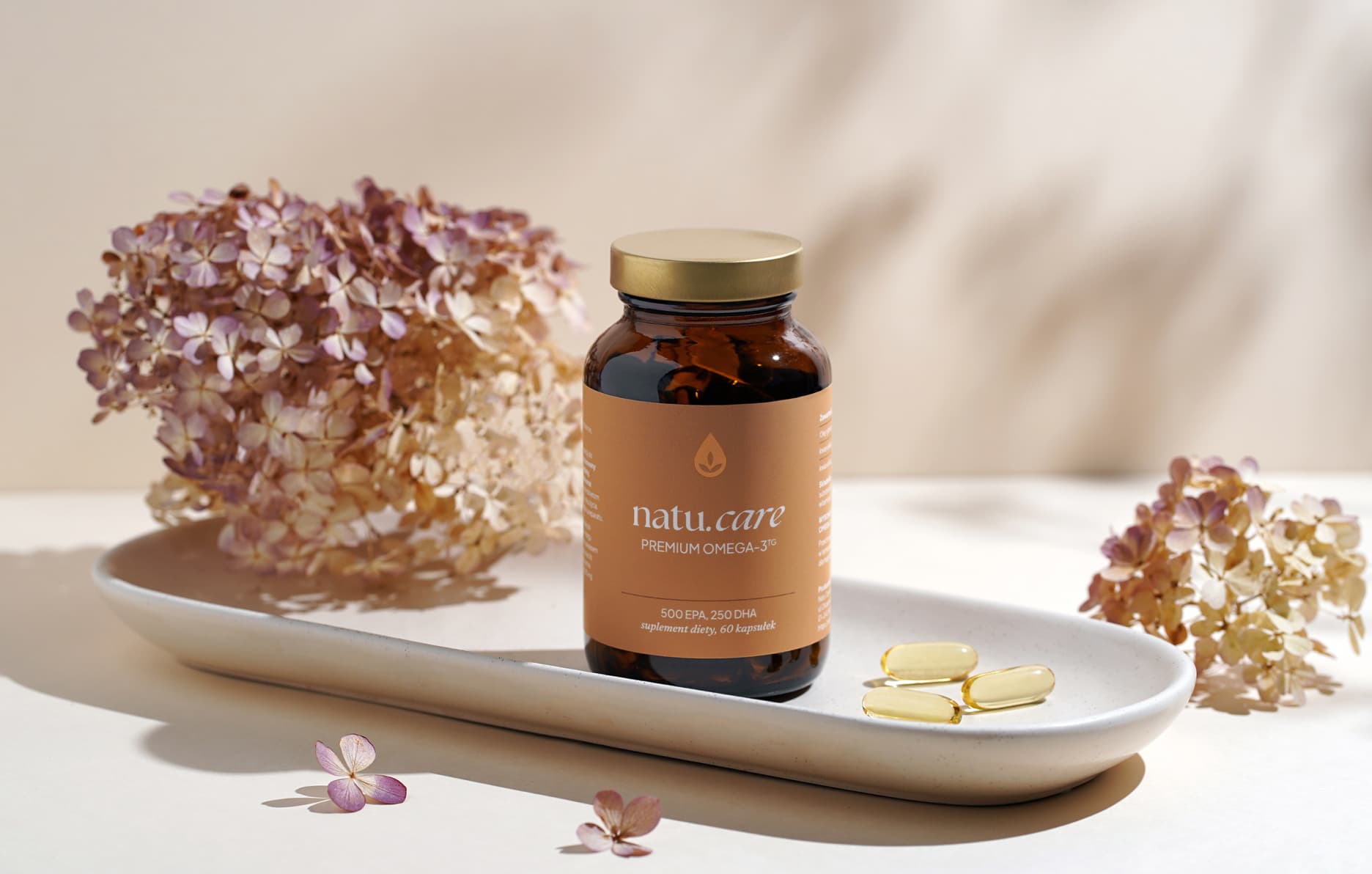
Sprawdź, za co pokochały go tysiące klientek Natu.Care Premium Omega-3ᵀᴳ -15% z kodem BLOG15
Natu.Care Omega-3ᵀᴳ Premium
Natu.Care Omega-3ᵀᴳ Premium dla zdrowia serca, mózgu i odporności. Najlepsza przyswajalność. Optymalna dawka 750 mg. Przebadana przez niezależne laboratorium.
Zobacz więcej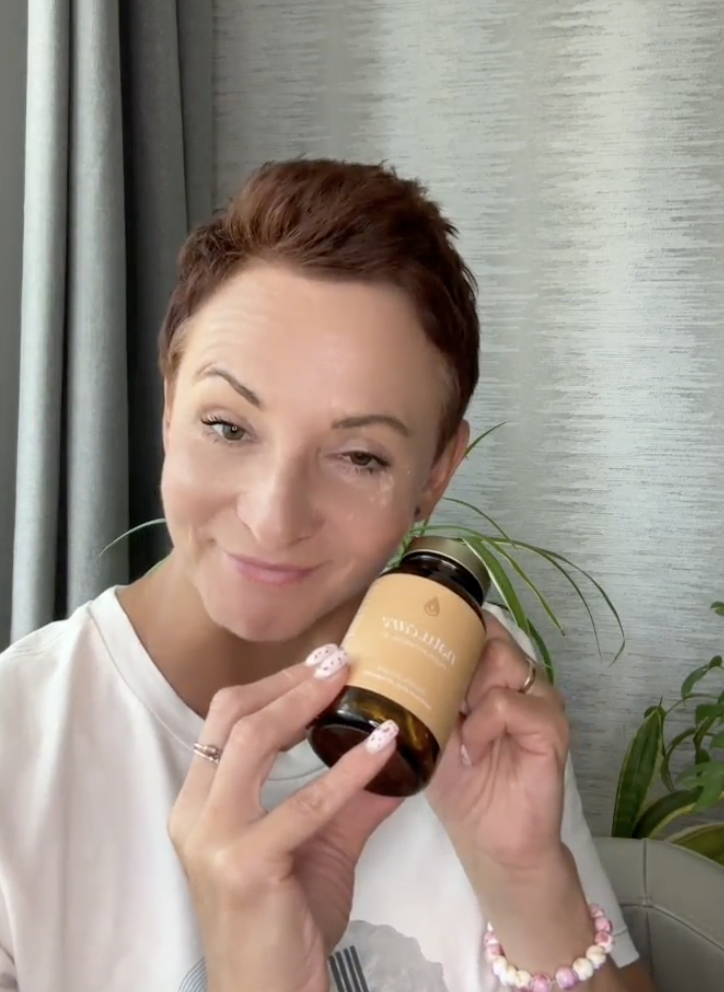
Produkt ma super skład, transparentną etykietę i co dla mnie jest ważne – małe kapsułki do połknięcia. Nie ma też nieprzyjemnego efektu odbijania rybą, który miałam spożywając inne produkty. Widzę znaczną poprawę odporności. Polecam!@Kasia P.
See also:
.- Probiotics
- Prebiotics
- Synbiotics
- Best over-the-counter sedation pills
- Stress medications and supplements
- How to look after your mental health
What is a psychobiotic?
.A psychobiotic is a probiotic that is designed to affect your wellbeing if you consume it in the right amount. As research suggests, certain probiotics - specific strains of bacteria that naturally inhabit the gut - can influence not only peristalsis and the digestive process itself, but also maintain the balance of other body systems: nervous, endocrine and immuneand.
Interestingly, according to a 2016 research review, not only probiotic bacteria, but also prebiotics, the nutrient supply of these bacteria, can have a positive effect on the psyche . By taking a prebiotic, you feed good bacteria and thus enable their accelerated growth and multiplication.
Did you know that
Neurons are not only found in the brain, although that is where they are most abundant. The second largest group of these cells is found... in the gut. In turn, gut bacteria can produce the neurotransmitters dopamine, norepinephrine, serotonin, acetylcholine and GABA - the best-known, silencing neurotransmitterand.
Gut-brain axis
.Although the mechanisms of how this connection works are still poorly understood, it is presumed that the bacteria inhabiting your gut and the substances they secrete (metabolic products) are chemical signals that the brain is able to read .
.Gut bacteria produce short-chain fatty acids (mainly propionate, butyrate and acetate). These are formed by the fermentation of carbohydrates (fibre), which are not digested and absorbed in the small intestine. Therefore, the amount and type of fibre is important for the composition of the intestinal microflora and the fatty acids it produces..
 .
.
Ilona Krzak Master of Pharmacy
This communication also works the other way round: the brain can decide on the secretion of hormones and other substances that can influence the living conditions of the gut microfloraand. This specific conversation between the gut microbiota and the brain, affects the body in four ways.
The gut-brain axis affectsand:
- emotional processes, .
- cognitive abilities, .
- stress and inflammatory responses (often associated with abnormal cytokine levels), .
- neurotransmitters and proteins that control them.
Communication takes place via the vagus nerve. It is the longest cranial nerve. Its ends are contracted under the intestinal epithelium to receive signals produced by the intestinal flora. The activity of the vagus nerve provides a protective barrier to the intestinal epithelium. If it is low, the intestinal barrier is more permeable. This promotes systemic inflammation and chronic disease..
 .
.
Ilona Krzak Master of Pharmacy
The discovery of this connection is a relatively fresh issue in scientific circles. The key study in this regard (on rodents) was conducted in 2004. You might think to yourself: well, it's been a while... But in the world of science, time passes a little differently.
First, scientific theses are tested on rodents and larger animals. Only when the positive effects are well documented (and this takes time...) are human studies undertaken. This is why most of the scientific work on psychobiotics deals with their effects on mice and rats. Their effects on humans have only been tested for a few years.
What strains of probiotic bacteria affect the psyche?
.The two main families of probiotic bacteria that scientists have looked at are Lactobacillus and Bifidobacteriumand. However, these micro-organisms can come in millions of different strains, each with slightly different effects on the body. So let's dive deeper.
Below you will find the specific strains of psychobiotic bacteria that have been tested in the largest number of scientific studies (especially those conducted with humans) and have achieved the best results.
For psychobiotics, look for strainsand:
.- Lactobacillus helveticus, .
- Lactobacillus rhamnosus, .
- Lactobacillus reuteri, .
- Lactobacillus plantarum, .
- Bifidobacterium longum, .
- Bifidobacterium infantis, .
- Bifidobacterium breve, .
The research specifies the exact taxonomy of the strain under study, for example: Lactobacillus paracasei PF6. This suffix is important as it specifies the exact strain. The strains may differ in their properties. These are not drastic differences, but they do occur. Therefore, when choosing a supplement, look at the taxonomy..
 .
.
Ilona Krzak Master of Pharmacy
Additionally, the addition of prebiotics such asand:
may prove valuable.- galacto-oligosaccharides, .
- transgalacto-oligosaccharides, .
- fructooligosaccharides, .
Psychobiotics for stress and... depression?
.Research conducted to date with humans suggests that psychobiotics can reduce feelings of anxiety, lower blood cortisol levels and improve mood through the release of neurotransmitters such as dopamine, serotonin or GABAand.
Pharmacist Ilona Krzak adds:
."In an in vitro study where bacteria fermented milk in the production of Italian cheeses, it was shown that the highest amounts of GABA, were produced by strains:
- Lactobacillus paracasei PF6, .
- Lactobacillus delbruecki subsp. bulgaricus PR1, .
- Lactococcus lactis PU1, .
- Lactobacillus brevis PM17" .
Through these mechanisms of action, psychobiotic therapy can help make the body more resilient to stress, and reduce perceived anxiety levels among healthy individuals, but also in patients with anxiety disorders (formerly known as neurosis)and.
And what about depression? Studies from 2013, 2016 and 2020 suggest that psychobiotics can help treat the symptoms of depression, especially that caused by chronic stress. In addition to influencing the production of adequate levels of norepinephrine and serotonin, it is also thought to be a helpful mechanism in the treatment of depression by reducing the levels of pro-inflammatory cytokines in the bodyand.
Cytokines are proteins produced by the immune system. The presence of some of them may induce immune stress and may be associated with an increase in depression .
A review of a 2021 study involving 1125 patients also seems to confirm the above findings. Indeed, the use of specific strains of probiotics resulted in an alleviation of depression and anxiety symptoms in participants. However, the authors of the review point out the numerous limitations of the scientific papers analysedand.
Can we therefore consider psychobiotics as new psychotropic drugs for the treatment of depression? No. Or at least not yet. The antidepressant properties of psychobiotics are dependent on the specific strain and the amount and timing of their consumption.
Some of the bacteria that have been suspected of having properties to help treat this severe illness have not worked at all. For others, although the effects are promising, there is still a need to establish the exact dosage, composition and duration for which they should be usedand.
Taking psychobiotics does not mean that we will experience spectacular results. These bacteria need to colonise the gut and have something to 'work' on. If we make it difficult for them with a poor diet and inappropriate eating habits, we should not count on the expected results..
 .
.
Ilona Krzak Master of Pharmacy
If you are taking antidepressants - don't put them off in favour of psychobiotics. And if you want to try supporting your therapy with these beneficial bacterial strains, be sure to let your doctor know.
For the time being, we can consider the use of psychobiotics as an alternative therapy to be used as an adjunct to, and not instead of, basic drug therapy..
 .
.
Ilona Krzak Master of Pharmacy
Important
Never try to treat depression on your own. It is a serious illness that affects the whole body, can exclude you from social life and, in extreme cases, can lead to death. If you suspect depression in yourself, seek help from a specialist: a psychiatrist or possibly a psychologist.
It is still common to think that we will be laughed at because we are getting mental health treatment. Therapy with a psychologist or psychiatrist is no shame! It is just a good sign that we want to take care of good mental health..
 .
.
Ilona Krzak Master of Pharmacy
Psychobiotics can also support memory and concentration. Studies have shown that certain strains of probiotic bacteria can improve cognitive function. This is due to their effect on the balance of the gut microflora, where neurotransmitters such as serotonin are produced. Maintaining adequate neurotransmitter homeostasis is crucial for proper brain functionand.
Ranking of TOP 5 best psychobiotics:
.- Alldeyn Rosebiotic .
- Dr. Jacob's Iodine + Selenium probio .
- Sanprobi Stress .
- Activlab Pharma Psychobiotic .
- Yango Psychobiotic .
When choosing psychobiotics, don't just go by the name written on the packaging. Some preparations are labelled as "probiotics", but when you look at the composition, you will find that they also contain the strains of psychobiotic bacteria you need.
ALLDEYNN ROSEBIOTIC
Product description
ROSEBIOTIC is a synbiotic containing a patented Lab2pro™ complex of 6 selected and tested strainsóof lactic acid bacteria. Synbiotic – is a combination of a prebiotic and a probiotic in one product. The product has a positive effect on supporting and strengthening the immune system, improving digestion, as well as the bioavailability of vitamins and mineralsóin the digestive tract.
Recommended dietary supplement when you want to rebuild the state of your intestinal microflora, regulate the digestive system and improve the absorption of nutrients.
Pros and cons
ROSEBIOTIC is a synbiotic containing a patented Lab2pro™ complex of 6 selected and tested strainsóof lactic acid bacteria. Synbiotic – is a combination of a prebiotic and a probiotic in one product. The product has a positive effect on supporting and strengthening the immune system, improving digestion, as well as the bioavailability of vitamins and mineralsóin the digestive tract.
Recommended dietary supplement when you want to rebuild the state of your intestinal microflora, regulate the digestive system and improve the absorption of nutrients.
Additional information
ROSEBIOTIC is a synbiotic containing a patented Lab2pro™ complex of 6 selected and tested strainsóof lactic acid bacteria. Synbiotic – is a combination of a prebiotic and a probiotic in one product. The product has a positive effect on supporting and strengthening the immune system, improving digestion, as well as the bioavailability of vitamins and mineralsóin the digestive tract.
Recommended dietary supplement when you want to rebuild the state of your intestinal microflora, regulate the digestive system and improve the absorption of nutrients.
Expert opinion
ROSEBIOTIC is a synbiotic containing a patented Lab2pro™ complex of 6 selected and tested strainsóof lactic acid bacteria. Synbiotic – is a combination of a prebiotic and a probiotic in one product. The product has a positive effect on supporting and strengthening the immune system, improving digestion, as well as the bioavailability of vitamins and mineralsóin the digestive tract.
Recommended dietary supplement when you want to rebuild the state of your intestinal microflora, regulate the digestive system and improve the absorption of nutrients.
Dr.Jacob's Iodine + Selenium probio
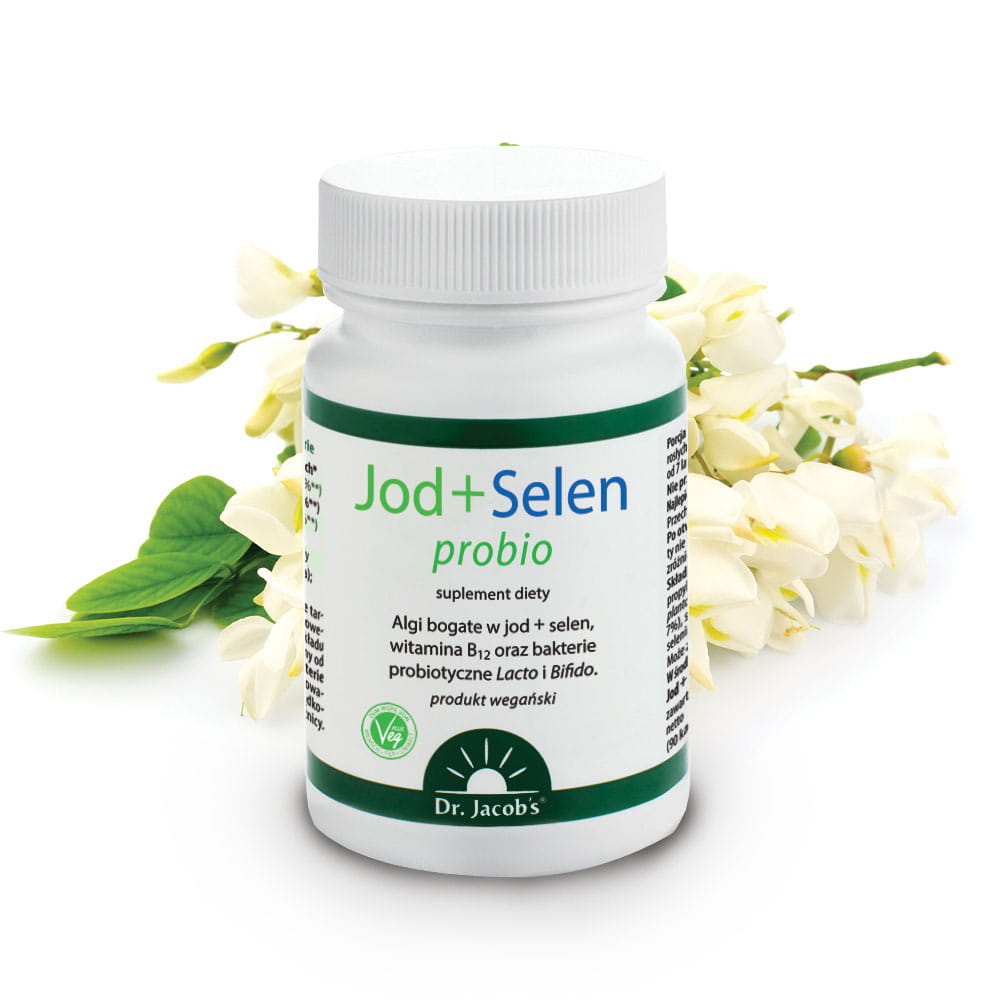
- Active ingredients: vitamin B12, iodine, selenium, silicon, Lactobacillus and Bifidobacteria .
- Form: capsules .
- Packaging: 90 capsules .
- Sufficient for: 3 months .
Product description
Iodine + Selenium probio dietary supplement is a combination of iodine, selenium, vitamin B12 and probioticós. The product formula is designed to support thyroid health and normal intestinal flora.
Iodine and selenium are key micronutrients essential for proper thyroid function. In turn, millions of probiotic bacteria, including Lactobacillus plantarum and Bifidobacterium lactis, help to maintain a healthy intestinal environment.
The following is a supplementary vitamin.
Additionally, vitamin B12 supports normal energy metabolism and the nervous system. The product is an excellent choice for people with thyroid problems and intestinal disorders.
The product is an excellent choice for people with thyroid problems and intestinal disorders.
Pros and cons
Iodine + Selenium probio dietary supplement is a combination of iodine, selenium, vitamin B12 and probioticós. The product formula is designed to support thyroid health and normal intestinal flora.
Iodine and selenium are key micronutrients essential for proper thyroid function. In turn, millions of probiotic bacteria, including Lactobacillus plantarum and Bifidobacterium lactis, help to maintain a healthy intestinal environment.
The following is a supplementary vitamin.
Additionally, vitamin B12 supports normal energy metabolism and the nervous system. The product is an excellent choice for people with thyroid problems and intestinal disorders.
The product is an excellent choice for people with thyroid problems and intestinal disorders.
Additional information
Iodine + Selenium probio dietary supplement is a combination of iodine, selenium, vitamin B12 and probioticós. The product formula is designed to support thyroid health and normal intestinal flora.
Iodine and selenium are key micronutrients essential for proper thyroid function. In turn, millions of probiotic bacteria, including Lactobacillus plantarum and Bifidobacterium lactis, help to maintain a healthy intestinal environment.
The following is a supplementary vitamin.
Additionally, vitamin B12 supports normal energy metabolism and the nervous system. The product is an excellent choice for people with thyroid problems and intestinal disorders.
The product is an excellent choice for people with thyroid problems and intestinal disorders.
Sanprobi Stress
.Rating: 4.8
- Active ingredients: Lactobacillus helveticus Rosell® - 52, Bifidobacterium longum Rosell® - 175 .
- Form: capsules .
- Packaging: 20 capsules .
- Sufficient for: 20 days .
Product description:
Sanprobi Stress contains two of the best researched probiotic bacterial strains for their effects on mental wellbeing. The product will help to strengthen the body's resistance to stress and improve mood. In addition, it will have a beneficial effect on the gut.
.Pluses and minuses:
Pluses:
- Well labelled strains of probiotic bacteria. .
- Simple and pure formulation.
- Preferably formulated.
- Suitable for children over the age of 3. .
Minusals:
.- Package only lasts for 20 days of supplementation. .
Additional information:
.Preparation contains soy and lactose. It should be stored at room temperature.
Preparation information.
Activlab Pharma Psychobiotic
.Rating: 4.9
- Active ingredients: Bifidobacterium infantis BI02, Bifidobacterium longum BL-G301, Lactobacillus acidophilus LA02, Lactobacillus helveticus LH060, Lactobacillus reuteri LRE02, Lactobacillus rhamnosus GG .
- Form: capsules .
- Packaging: 20 capsules .
- Sufficient for: 20 days .
Product description:
Preparation contains up to 6 strains of probiotic bacteria, important for your mental condition, immunity and digestive health. The effect of these microorganisms has been further enhanced by the addition of a prebiotic in the form of fructooligosaccharides.
Plus and minus.
Pluses and minuses:
Pluses:
- Well labelled strains of probiotic bacteria. .
- High diversity of bacterial strains.
- Prebiotic additives.
- Addition of prebiotic. .
Minuses:
.- Package only lasts for 20 days of supplementation. .
Additional information:
.Store the product at room temperature, in a dry and shaded place.
Yango Psychobiotic
.Rating: 4.5
- Active ingredients: Bacillus coagulans MTCC 5856 (LactoSpore®), GABA (gamma-aminobutyric acid) .
- Form: capsules .
- Packaging: 60 capsules .
- Sufficient for: 2 months .
Product description:
Psychobiotic by Yango is a combination of prebiotic bacteria and gamma-aminobutyric acid, known as GABA. GABA is a neurotransmitter naturally found in the body, which - simply put - is responsible for calming the body in stressful situations.
Positive.
Pluses and minuses:
Pluses:
- Well-labelled probiotic bacteria strain.
- Preferentially labelled probiotic bacteria strain.
- Not a bad addition in the form of GABA, although the portion could be higher.
- The following is a good addition.
Minuses:
- Only one strain of probiotic bacteria. .
Additional information:
.The capsule shell is made of vegetable cellulose. Keep the product at room temperature and do not expose to direct sunlight.
Natural psychobiotics in food
.Diet psychobiotic foods are not just about pickles, yoghurt, kefir or other fermented products - that is, natural sources of probiotic bacteria. To look after your microbiota naturally, it's also worth eating fibre, which can provide a great breeding ground for these beneficial microorganisms.
.|
Foods rich in probiotics ('good' bacteria) . |
Foods rich in prebiotics ("good" bacteria) |
|
|
It is worth emphasising that in food (unlike supplements) we will not have knowledge of the specific strains consumed..
 .
.
Ilona Krzak Master of Pharmacy
You have histamine intolerance? Pharmacist Ilona Krzak advises:
"Pickles contain large amounts of histamine, which can manifest as unpleasant stomach discomfort, rashes or even migraines. The enzyme DAO, which is also available in the supplement, can then be used."
Psychobiobiotics.
Psychobiotics - side effects
.Despite the fact that psychobiotics are 100% naturally occurring microorganisms in the human body, their supplementation can cause gastrointestinal discomfort or allergic reactions in some people.
Psychobiotics are also known to cause side effects.
Like many other probiotic supplements, psychobiotics can cause gastrointestinal complaints such as:
- congestion, .
- gas, .
- constipation, .
- diarrhoea, .
These side effects are usually short-lived and subside after a few days of regular use as the body becomes accustomed to them. You can avoid them by slowly introducing one dietary supplement or foods rich in them - not all at once.
There are times, however, when taking psychobiotics before long or in excessive quantities can lead to an overgrowth of bacterial flora in the gut. This condition is called SIBO syndrome.
People who suffer from this condition are not advised to take any probiotics - including psychobiotics.
.Rarely, but occasionally, some people may experience allergic reactions to ingredients in psychobiotics. Symptoms may include itching, rash, facial swelling, difficulty breathing or a scratchy feeling in the throatand.
Psychobiotics may also interact with certain medications, particularly those used to treat psychiatric disorders. Always consult your doctor before starting psychobiotics if you are taking any medication.
See also:
Probiotics - expert opinions
.Experts agree: psychobiotics work. They can affect your wellbeing and mental health, and can even help with anxiety disorders or symptoms of depression. However, it is worth remembering that their beneficial effects on the mind depend on the specific strains of these bacteria and the use of appropriate doses.
Jagoda Turowska, psychologist and psychotherapist:
."Research indicates that the use of probiotics helps to reduce stress and supports the treatment of depression, especially as stress is often associated with the gastrointestinal tract and intestines. Importantly, only specific strains of bacteria support improved concentration and mental health. A first-best probiotic will not work like this.
Probiotics help to improve mood and concentration, but when used in excess they can harm us instead of helping us. Probiotics also help with anxiety disorders or support the treatment of Alzheimer's disease. But one must be careful with their use. An excess of bacteria - even the good ones - can lead to SIBO syndrome or impaired concentration."
Julia Skrajda, clinical nutritionist:
"Psychobiotics are nothing more than probiotics that act on the HPA axis, or hypothalamic-pituitary-adrenal axis. These are specific bacterial strains that are designed to help hormones regulate mood and prophylactically support concentration and memory.
These specific bacteria in psychobiotics act on the gut-brain axis and have a slightly broader application than stricte gastrointestinal diseases. By all accounts, these are worthy products from which we can derive tangible health benefits."
Ilona Krzak, Master of Pharmacy:
."The intestinal microflora is extremely important for good health and overall well-being. Its proper state has an impact on the inflammation going on in the body or chronic diseases, which also translates into the risk of Alzheimer's or Parkinson's disease in the future.
It is also important to have an adequate intestinal microflora.
Unfortunately, the so-called Western diet, i.e. processed foods saturated with preservatives, colourings and other enhancers, unwarranted antibiotic treatments, the use of certain medications, a life of constant running and stress, without adequate rest, all have an impact on our microbiome, and consequently on our wellbeing, mental state and immunity.
I consider microbiotics/psychobiotics an important part of our diet, especially when we are affected by the factors mentioned above.
I hope that knowledge on this subject will rapidly develop and almost everyone will know that a healthy gut is a healthy brain."

Sprawdź, za co pokochały go tysiące klientek Natu.Care Premium Omega-3ᵀᴳ -15% z kodem BLOG15
Natu.Care Omega-3ᵀᴳ Premium
Natu.Care Omega-3ᵀᴳ Premium dla zdrowia serca, mózgu i odporności. Najlepsza przyswajalność. Optymalna dawka 750 mg. Przebadana przez niezależne laboratorium.
Zobacz więcej
Produkt ma super skład, transparentną etykietę i co dla mnie jest ważne – małe kapsułki do połknięcia. Nie ma też nieprzyjemnego efektu odbijania rybą, który miałam spożywając inne produkty. Widzę znaczną poprawę odporności. Polecam!@Kasia P.
See also:
.- What are adaptogens? .
- Ashwagandha
- Passionflower (passionflower) .
- Light CBD oils
- Huckleberry
- Butyric acid
- Sodium butyrate
Summary
.- Psychobiotics are probiotic bacteria that can affect mental health.
- Psychobiotics are probiotic bacteria that can affect mental health.
- The main action of psychobiotics relates to helping with anxiety disorders, symptoms of depression, building natural resistance to stress and improving concentration.
- Psychobiotics are also known to help with anxiety disorders, symptoms of depression, building natural resistance to stress and improving concentration.
- Psychobiotics affect the functioning of the nervous, immune and digestive systems through a connection called the gut-brain axis.
- Psychobiotics can be supplied to the body through dietary supplements or foods rich in them.
- Providing adequate prebiotics, the substances that psychobiotics feed on, can also be valuable for improving psychological wellbeing.
- Psychobiotics can also be used to improve mental health.
- Psychobiotic therapy is considered safe; however, it can have side effects in some people. The most common of these include stomach problems and allergic reactions to specific components of the preparation.
FAQ
.How long to use a psychobiotic?
.Most studies have used psychobiotics for 4 to 12 weeks. However, the most common recommendation is to use them for 4-8 weeks. This time is needed for the gut microflora to recover.
Always use the psychobiotic according to the manufacturer's recommendations on the packaging. Taking probiotic bacteria for too long can lead to overgrowth of the bacteria, which promotes digestive discomfort.
Make sure to take the probiotic bacteria as directed by the manufacturer.
Remember to consult your doctor before starting any supplementation, especially if you have health problems or are taking other medications. This is crucial as psychobiotics can interact with some pharmaceuticals.
What probiotics for anxiety?
.If you want to try to relieve anxiety by taking probiotics, look primarily for strains of Lactobacillus helveticus, Lactobacillus rhamnosus, in the formulations;Lactobacillus reuteri, Lactobacillus plantarum, Bifidobacterium longum, Bifidobacterium infantis, Bifidobacterium breve.
Research suggests that these probiotic bacteria may alleviate anxiety and improve the body's natural resistance to stress.
What do psychobiotics work for?
Psychobiotics can produce neurotransmitters that support mental conditioning. Research indicates that gut-dwelling microbes can help fight depression, anxiety disorders and improve the body's resistance to stress.
Some strains of probiotic bacteria may also show concentration-enhancing effects. In addition, psychobiotics will support the digestive and immune systems.
Is taking probiotics healthy?
.Yes, probiotics can provide many health benefits. They improve the gut flora, which is key to the proper functioning of the digestive and immune systems. For example, probiotics Lactobacillus rhamnosus GG, Bifidobacterium and Saccharomyces boluardii may reduce the risk of diarrhoea associated with taking antibiotics.
Incorporate them into diet, especially during or after antibiotic treatment, to rebuild the bacterial flora. When buying probiotics, make sure they are suitable for you. Some may contain ingredients that you are allergic to or have an intolerance to (e.g. lactose).
Remember that probiotics are not a substitute for a balanced diet and healthy lifestyle. Consult your doctor or dietician before starting any supplementation.
Please note that probiotics are not a substitute for a balanced diet and a healthy lifestyle.
What bacteria produce serotonin?
.Bacteria responsible for serotonin production in the body include probiotics from the Lactobacillus and Bifidobacterium families. Particularly known for serotonin production are the strains Lactobacillus acidophilus, Lactobacillus plantarum and Bifidobacterium infantis. Look for these strains in probiotic supplements (psychobiotics) or in fermented foods such as yoghurt, kefir or pickled vegetables.
Taking these probiotics can support the production of serotonin, a neurotransmitter that regulates mood and sleep. Research has shown that imbalances in the gut microflora can affect serotonin levels, highlighting the importance of a healthy diet and probiotic supplementation.
What probiotics for stress?
.To alleviate the effects of stress, choose a psychobiotic that contains probiotic bacterial strains that target stress resistance and relieve symptoms of anxiety. Look for strains in probiotic preparations: Lactobacillus helveticus, Lactobacillus rhamnosus, Lactobacillus reuteri, Lactobacillus plantarum, Bifidobacterium longum, Bifidobacterium infantis, Bifidobacterium breve.
Pharmacist Ilona Krzak adds that improvements in wellbeing will not come after taking just one tablet. It needs to be complemented with the right diet and preferably a change in lifestyle for the effect to be visible and long-lasting.
What has a lot of probiotics?
.Foods rich in probiotics are primarily pickles and dairy products. Consume natural yoghurts (preferably those with labelled bacterial strains), kefirs, meat, sauerkraut, pickled cucumbers and tempeh. These foods are rich in bacteria that support gut health.
Incorporating these foods into your menu can improve your digestive system, immune system and even have a positive impact on your mood.
Sources
.See all
.Allen, A. P., Hutch, W., Borre, Y. E., Kennedy, P. J., Temko, A., Boylan, G., Murphy, E., Cryan, J. F., Dinan, T. G., & Clarke, G. (2016). Bifidobacterium longum 1714 as a translational psychobiotic: Modulation of stress, electrophysiology and neurocognition in healthy volunteers. Translational Psychiatry, 6(11), Article 11. https://doi.org/10.1038/tp.2016.191
Berding, K., Bastiaanssen, T. F. S., Moloney, G. M., Boscaini, S., Strain, C. R., Anesi, A., Long-Smith, C., Mattivi, F., Stanton, C., Clarke, G., Dinan, T. G., & Cryan, J. F. (2023). Feed your microbes to deal with stress: A psychobiotic diet impacts microbial stability and perceived stress in a healthy adult population. Molecular Psychiatry, 28(2), Article 2. https://doi.org/10.1038/s41380-022-01817-y
Cheng, L.-H., Liu, Y.-W., Wu, C.-C., Wang, S., & Tsai, Y.-C. (2019). Psychobiotics in mental health, neurodegenerative and neurodevelopmental disorders. Journal of Food and Drug Analysis, 27(3), 632-648. https://doi.org/10.1016/j.jfda.2019.01.002
Cohen Kadosh, K., Basso, M., Knytl, P., Johnstone, N., Lau, J. Y. F., & Gibson, G. R. (2021). Psychobiotic interventions for anxiety in young people: A systematic review and meta-analysis, with youth consultation. Translational Psychiatry, 11(1), Article 1. https://doi.org/10.1038/s41398-021-01422-7
Del Toro-Barbosa, M., Hurtado-Romero, A., Garcia-Amezquita, L. E., & García-Cayuela, T. (2020). Psychobiotics: Mechanisms of Action, Evaluation Methods and Effectiveness in Applications with Food Products. Nutrients, 12(12), 3896. https://doi.org/10.3390/nu12123896
Dinan, T. G., Stanton, C., & Cryan, J. F. (2013). Psychobiotics: A Novel Class of Psychotropic. Biological Psychiatry, 74(10), 720-726. https://doi.org/10.1016/j.biopsych.2013.05.001
Evrensel, A., Ünsalver, B. Ö., & Ceylan, M. E. (2019). Psychobiotics. In Y.-K. Kim (Ed.), Frontiers in Psychiatry: Artificial Intelligence, Precision Medicine, and Other Paradigm Shifts (pp. 565-581). Springer. https://doi.org/10.1007/978-981-32-9721-0_28
Heidarzadeh-Rad, N., Gökmen-Özel, H., Kazemi, A., Almasi, N., & Djafarian, K. (2020). Effects of a Psychobiotic Supplement on Serum Brain-derived Neurotrophic Factor Levels in Depressive Patients: A Post Hoc Analysis of a Randomized Clinical Trial. Journal of Neurogastroenterology and Motility, 26(4), 486-495. https://doi.org/10.5056/jnm20079
LifeSciencesIntelligence. (2023, August 15). Enhancing Mental Wellness with Psychobiotics, the Gut-Brain Connection. LifeSciencesIntelligence. https://lifesciencesintelligence.com/features/enhancing-mental-wellness-with-psychobiotics-the-gutbrain-connection
Morales-Torres, R., Carrasco-Gubernatis, C., Grasso-Cladera, A., Cosmelli, D., Parada, F. J., & Palacios-García, I. (2023). Psychobiotic Effects on Anxiety Are Modulated by Lifestyle Behaviors: A Randomized Placebo-Controlled Trial on Healthy Adults. Nutrients, 15(7), Article 7. https://doi.org/10.3390/nu15071706
Sarkar, A., Lehto, S. M., Harty, S., Dinan, T. G., Cryan, J. F., & Burnet, P. W. J. (2016). Psychobiotics and the Manipulation of Bacteria-Gut-Brain Signals. Trends in Neurosciences, 39(11), 763-781. https://doi.org/10.1016/j.tins.2016.09.002
Tian, P., O'Riordan, K. J., Lee, Y., Wang, G., Zhao, J., Zhang, H., Cryan, J. F., & Chen, W. (2020). Towards a psychobiotic therapy for depression: Bifidobacterium breve CCFM1025 reverses chronic stress-induced depressive symptoms and gut microbial abnormalities in mice. Neurobiology of Stress, 12, 100216. https://doi.org/10.1016/j.ynstr.2020.100216
Vaghef-Mehrabany, E., Maleki, V., Behrooz, M., Ranjbar, F., & Ebrahimi-Mameghani, M. (2020). Can psychobiotics 'mood' ify gut? An update systematic review of randomized controlled trials in healthy and clinical subjects, on anti-depressant effects of probiotics, prebiotics, and synbiotics. Clinical Nutrition, 39(5), 1395-1410. https://doi.org/10.1016/j.clnu.2019.06.004
Dib, R. E., Periyasamy, A. G., Barros, J. L. de, França, C. G., Senefonte, F. L., Vesentini, G., Alves, M. G. O., Rodrigues, J. V. da S., Gomaa, H., Júnior, J. R. G., Costa, L. F., Ancken, T. de S. V., Toneli, C., Suzumura, E. A., Kawakami, C. P., Faustino, E. G., Jorge, E. C., Almeida, J. D., & Kapoor, A. (2021). Probiotics for the treatment of depression and anxiety: A systematic review and meta-analysis of randomized controlled trials. Clinical Nutrition ESPEN, 45, 75-90. https://doi.org/10.1016/j.clnesp.2021.07.027
Appleton, J. (2018). The Gut-Brain Axis: Influence of Microbiota on Mood and Mental Health. Integrative Medicine: A Clinician's Journal, 17(4), 28-32. https://www.ncbi.nlm.nih.gov/pmc/articles/PMC6469458/
Editorials
Meet the team

Ilona Krzak obtained her Master of Pharmacy degree from the Medical University of Wrocław. She did her internship in a hospital pharmacy and in the pharmaceutical industry. She is currently working in the profession and also runs an educational profile on Instagram: @pani_z_apteki

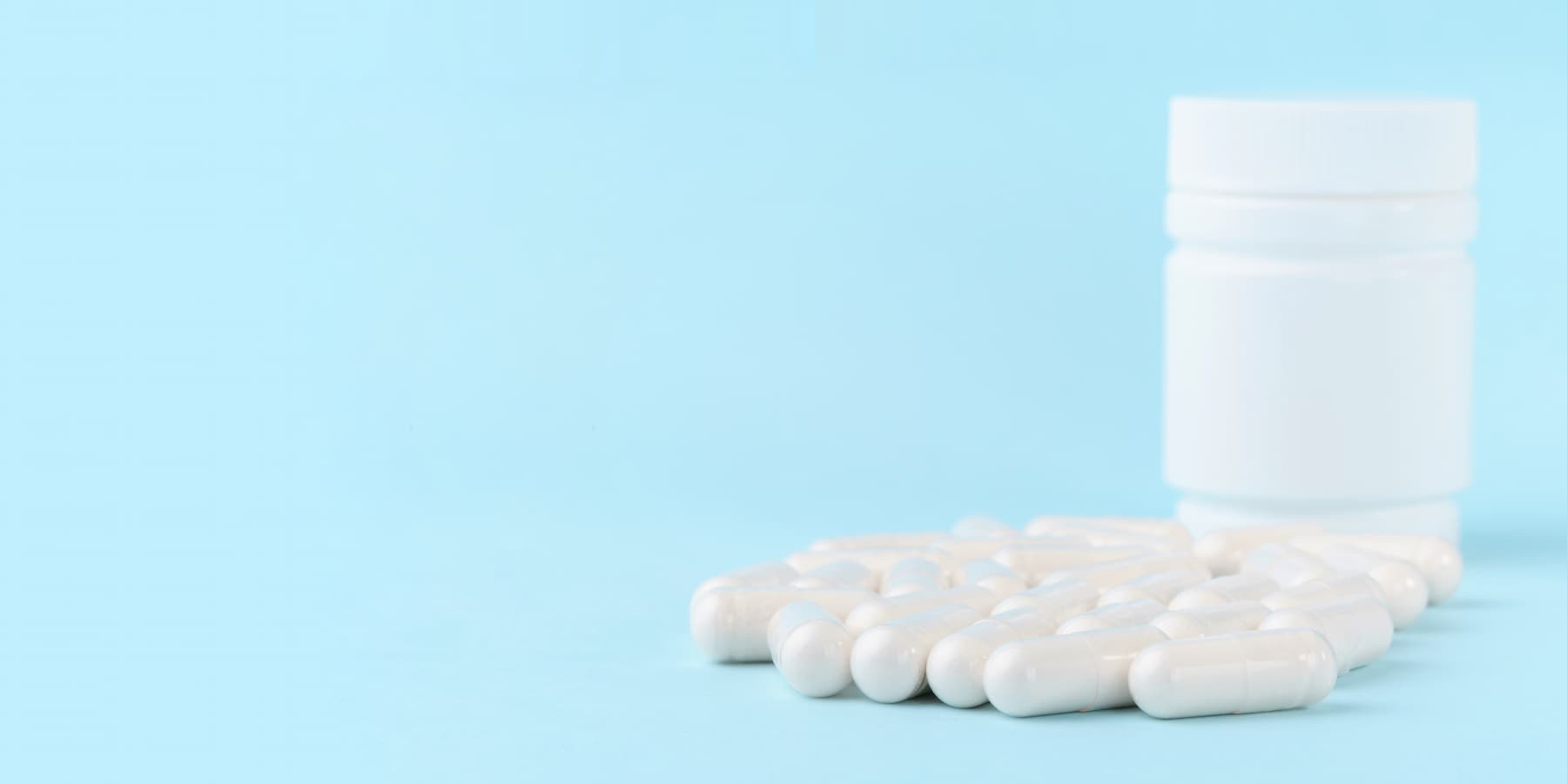
Chondroitin helps the joints and other elements of the body.
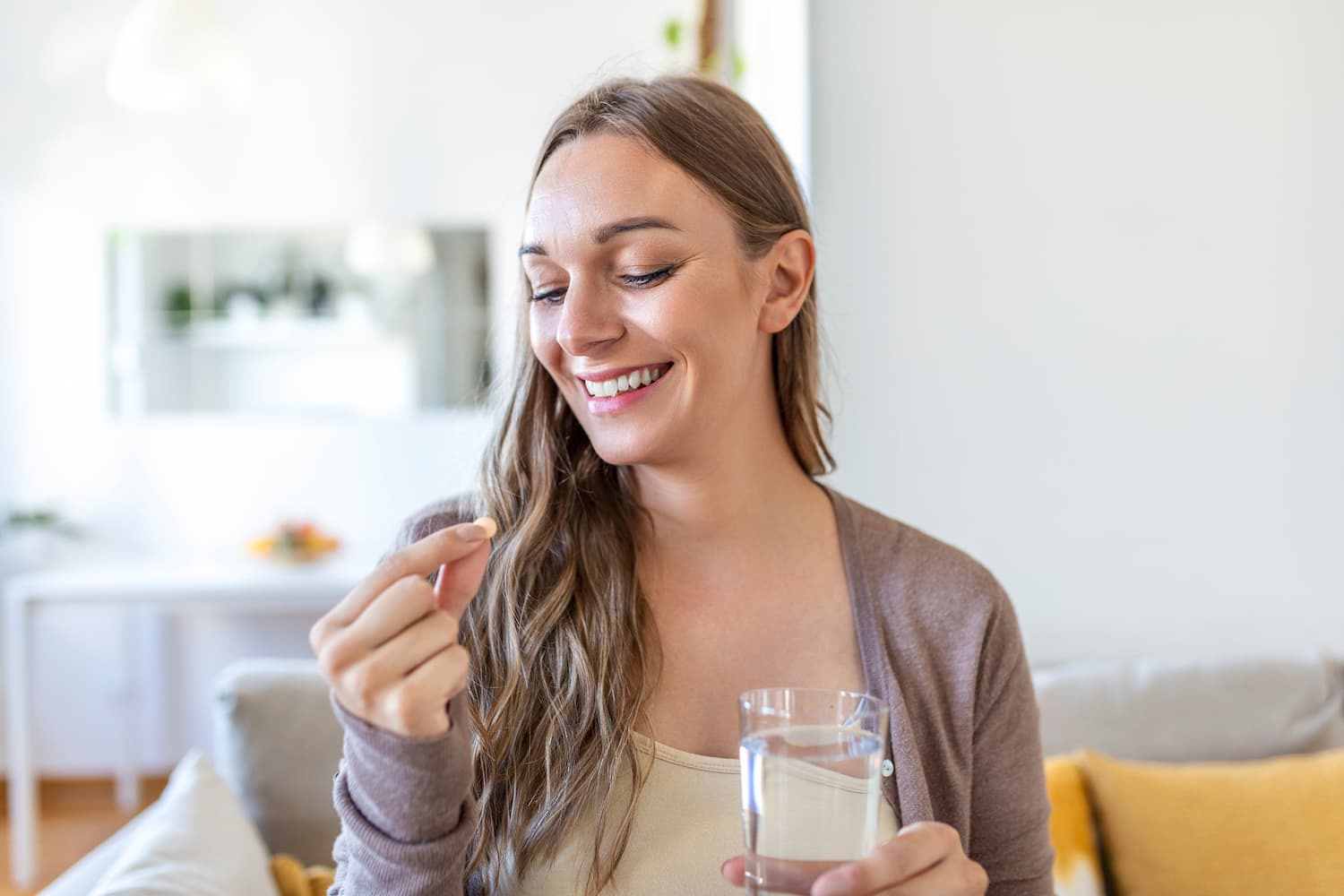
Glutathione is one of the most potent antioxidants for supporting the body's health. Find out how it works and where to get it from.

See why hip joints hurt and how to treat their ailments.
